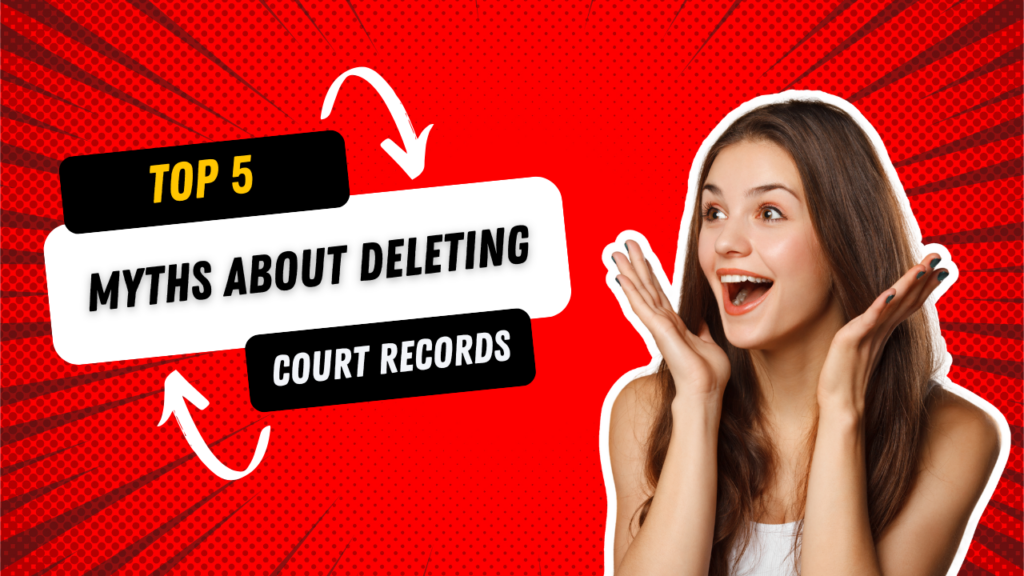Can You Really Delete a Court Record from the Internet?
If you’ve Googled your name and found an old court case, you’ve probably come across dozens of articles, services, and forums promising to make it disappear.
Here’s the truth: most of what people believe about deleting court records online is either outdated—or completely wrong.
Let’s break down the five biggest myths, so you know what’s possible, what’s not, and where you actually have control.
Dig Deeper: How to Remove Court Records from Google Search
Myth 1: You Can Just “Delete” Court Records from Google
You can’t delete something directly from Google—it’s a search engine, not the source.
Google only indexes content that exists on other websites. If a court record is showing up, it’s because it’s been published somewhere—like a county court site, public database, or third-party record host.
Reality:
To get the result off Google, you need to either:
- Remove it from the source website, or
- Request deindexing (under specific policies like privacy violations or the Right to Be Forgotten)
Myth 2: Expunging a Record Automatically Removes It from the Internet
Expungement clears your legal record—but it doesn’t erase what’s already been published online.
Court sites, mugshot pages, and legal reporting sites don’t always update their databases. Some leave the content up even after the case is sealed or dismissed.
Reality:
Even with an expungement, you may need to:
- Contact the website hosting the content
- Provide a copy of your expungement order
- Request removal manually or with legal support
Myth 3: Paying to Remove a Court Record Is Always a Scam
Not true—but tread carefully.
Some services do use shady tactics or overpromise results. But legitimate firms that specialise in reputation management or content removal can help you:
- Remove court records from third-party sites
- Suppress negative search results
- File legal takedown requests when applicable
Reality:
Just make sure you’re working with a team that:
- Has clear case studies
- Offers transparent pricing
- Doesn’t promise total deletion from official sources unless legally possible
Myth 4: If It’s Public Record, It Can’t Be Removed
This one’s only partly true.
Yes, court records are often public—but where and how they’re published can be challenged. For example:
- Some states allow removal from county sites after a set time period
- Google may remove links under the Right to Be Forgotten (in the EU or UK)
- Certain privacy or harassment laws can justify removal requests
Reality:
Being public record doesn’t make it untouchable. It just means you need the right legal or SEO-based approach.
Myth 5: Suppression Is a Waste of Time
Wrong. Suppression is one of the most effective strategies when deletion isn’t an option.
By creating and ranking positive content, you push harmful court records off the first page of search. Most people don’t go past page one—so this method works.
Reality:
Suppression is used by celebrities, executives, and everyday people alike. It’s discreet, long-term, and often the only realistic way to take control.
Final Thoughts: Know the Facts Before You Act
There’s a lot of noise out there about removing court records. Don’t fall for the myths.
If you understand what’s possible—and what’s not—you can take the right steps to protect your name online.
Need Help Removing or Suppressing a Court Record?
At Reputation Galaxy, we’ve helped thousands of clients take back control. Whether you need to erase it, deindex it, or push it down—we’ve got proven strategies that work.
Private. Legal. No win, no fee.

